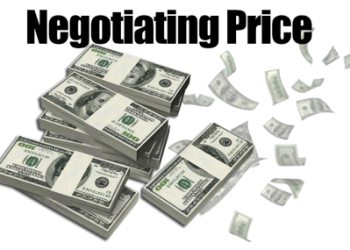Unmanaged emotions during the purchase or sale of real estate can create tremendous stress, and it can even kill a transaction. Far too often unmanaged emotions hinder the parties from achieving a common goal, which is getting to closing.
Examples of Unmanaged Emotions
I’ve had buyers who experienced frustration when there was a delay that they attributed to bad motives on the part of either the seller or the other Realtor. A client who has unmanaged emotions can fall into the trap of false accusations against another party in the transaction, and that’s when unmanaged emotions become destructive to the relationships.
“It ain’t what you don’t know that gets you into trouble. It’s what you know for sure that just ain’t so.” Mark Twain
Short sales are complicated transactions, and require a great deal of patience on the part of buyers, because the closing date cannot be set with any kind of certainty. I had one short sale that took 353 days through no fault of my buyer or myself as the buyer’s agent, and through no fault of anyone else. There are many independent parties involved in a short sale, including other banks (sometimes several banks), their independent attorneys, the seller who must cooperate with all the independent parties who all require separate documentation, and there is often a bankruptcy trustee, which makes things even more difficult. There is also the short sale negotiator, who like the other parties is somewhere in the country far away from everyone else. Coordinating a complicated short sale is like playing three dimensional chess, although the buyer and the buyer’s agent do not have control over the other parties or their individual timelines and legal responsibilities to their own clients.
A big part of all this for a buyer is realizing that they will not necessarily know the process that all of the parties involved in their transaction must go through. In other words, a buyer may feel like everyone is not keeping them up to date on every detail, and that is almost certainly true. The escrow agent, the title officer, the short sale negotiator, the attorneys for each of the banks, and a bankruptcy trustee do not owe the buyer an obligation to keep them up to date on each of their individual processes. A short sale negotiator is tasked with the responsibility to coordinate the settlement payoffs with each of the banks and their attorneys, but even the short sale negotiator is not constantly updated by each of the banks and their attorneys on their own in-house decision making processes. And the Realtors involved will not be privy to all those communications, nor should they be.
This is why I spend so much time with clients who want to buy a short sale property, explaining to them in great detail how a short sale works, how it can drag on and on, and how little control we have over all the other parties. Even with such lengthy explanations, I have seen a couple of clients get frustrated and angry after a period of months, because they have unmanaged emotions. Of course, we can all understand the feelings, but it’s what we do with our feelings that is either constructive or destructive.
A short sale can test the patience of the most patient buyer, but unmanaged emotions can cause a buyer to start casting false accusations or attributing bad motives to one of the many parties involved.
The same thing can happen when a home inspection is conducted, and some problems need to be discussed between the parties. The buyer can jump to false conclusions, and if they are not managing their emotional triggers, they can make the whole process harder for everyone involved. [Read more articles on Negotiating.]
How to Manage Unmanaged Emotions
The challenge for all of us is to recognize when we think we know something that we really do not. “It ain’t what you don’t know that gets you into trouble. It’s what you know for sure that just ain’t so.” Mark Twain
I have seen clients with unmanaged emotions create stress for themselves, because they are assuming they know how a transaction should work, but they do not.
My recommendation on this subject comes in two parts. First, try to recognize when you don’t know something or when you think you know something but do not, and watch out for those unmanaged emotions that can destroy relationships, not to mention your transaction. And second, if you’ve hired a knowledgeable, competent, professional and trustworthy Realtor, you need to have a level of faith that your Realtor is representing you well. I’ve written elsewhere the time time to do your due diligence on your Realtor is before a transaction, not in the middle of one.
Unmanaged emotions are dangerous. If you know that, you can safeguard your emotions and nurture your friendships and all the relationships in your real estate transaction. By the time you get to closing and beyond, you’ll be glad you extended mercy and grace to everyone and did not let unmanaged emotions steer your transaction in the wrong direction.
Last Updated on August 2, 2022 by Chuck Marunde
































